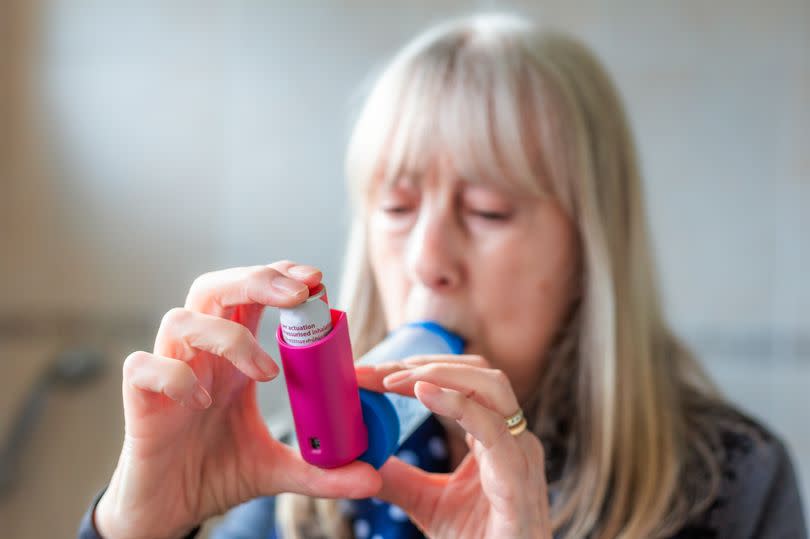Brits with asthma warned about ‘new rules’ for inhalers during ‘pollen bomb’ week

The skyrocketing pollen levels could spell disaster for countless Brits prone to hayfever but also the five and a half million people with asthma, particularly those using inhalers as part of their treatment. Pollen won’t affect all asthma patients but the upcoming pollen bomb may trigger worsening symptoms in some including coughing, wheezing and shortness of breath that will see them reaching for their inhalers more often.
However, those using inhalers are being warned about new guidance and rules that have been drawn up by the Scottish Intercollegiate Guidelines Network and the British Thoracic Society, particularly regarding over-dependence. The new guidance refers to those using reliever inhalers such as salbutamol (Ventolin) as it encourages people to switch to combination inhalers that contain both relievers and preventers.
The guidance is due to be published by the end of the year, and Brits can read the draft proposals here, which mimic recommendations made by Global Initiative for Asthma two years ago after flagging concerns that people overuse relievers such as salbutamol which can cause side effects. Salbutamol provides users relief from asthma symptoms by opening up constricted airways in the lungs but the fast-acting effect is also short-lived, usually only lasting for four hours or less and doesn’t treat the underlying inflammation that triggers asthma.
Preventers, which are usually inhaled steroids, are often prescribed alongside relievers to treat the inflammation and sensitivity that causes the symptoms and asthma patients are encouraged to keep using their preventer inhalers particularly when they don’t have symptoms. However, a recent Swedish study monitoring nearly 400,000 asthma patients found that a third overused their reliever while one in four hadn’t collected a single prescription for their preventer inhaler during the same period.
Heavy use of a reliever inhaler doesn’t always indicate an over-use or dependence on it, as Dr Mark Porter assured in The Times, but could simply be a sign that a person has severe asthma. But the expert noted: “In most cases it indicates that you are not on the right/enough medication — either because you are not taking it as prescribed or you haven’t been prescribed it.”
He advised that most people with mild or moderate asthma should always carry their inhalers but shouldn’t need to use it too regularly. Dr Porter explained that the new guidelines will see patients getting combination inhalers that they can use in the same way but also treat the underlying cause will getting temporary relief.
For those who fear they may be over-using their inhaler, Dr Porter advised they start “taking regular doses of preventer as prescribed” and see their GP or asthma nurse if they still need their reliever. He also urged asthma patients to ensure they are using their inhalers properly noting that “poor technique” is one of the most common causes of poorly controlled asthma.
For those who are facing a double-whammy of asthma and hay fever, Dr Porter recommended daily antihistamines, steroid nasal sprays and eye drops to ease the symptoms of hay fever which could in turn help control their asthma.

 Yahoo News
Yahoo News 
